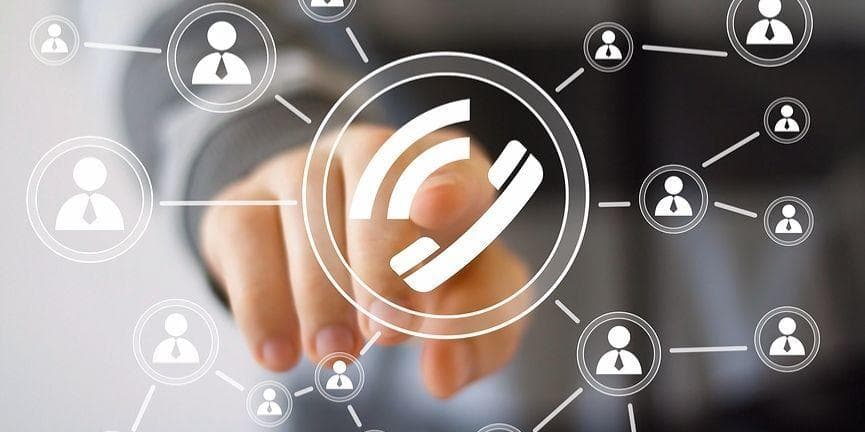Businesses large and small are always looking for new ways to improve customer relations and streamline operations.
VoIP services can help with both of those goals by making telecommunication systems more efficient, and making business owners and employees more available for their customers.
What is VoIP?
VoIP is an acronym for Voice over Internet Protocol. VoIP services offer an alternative to traditional phone systems, providing calling and messaging services over the internet.
Conventional phone systems use analog signals for communication. VoIP systems take those analog signals and convert them to digital data that can be securely transmitted over internet protocols.
What is CRM integration?
CRM stands for Customer Relationship Management, which is basically the system or process a company employs to manage relations with existing and potential customers.
When a CRM platform is integrated with a VoIP service provider, it means directly connecting your CRM account with your telecommunication system for data exchange and management.
How can this integration help improve business relations?
Business Advantages of VoIP CRM Integration
There are several benefits for businesses that decide to assimilate customer relationship management and VoIP technology.
Some of the main advantages, might be:
- Automated call logging
- Improved efficiency
- Enhanced customer experience
- Detailed analytics
- Better customer service management
Automated Call Logging
Without integrated CRM service, sales and customer service agents are required to take manual notes from each call, and then log that information into the system.
Having to take manual notes can be distracting for both the agent and the customer, and can result in an awkward or incomplete communication.
VoIP CRM integration can offer real-time call logging solutions. Data metrics like phone number, time of call, length of call, device used, whether the call was VoIP or traditional phone line, and where the call is coming from can be automatically recorded.
Call recording options are also available, and some systems can attach the voice recordings to the customer profile.
All this information can be useful for learning more about the customer and offering a better experience.
Improved Efficiency
Having to spend less time on manual call logging can help improve efficiency for customer service, both per call and for overall call volume.
Calling a customer support line and having to provide all your contact information while the service agent searches for your profile and inquires about previous interactions can be very frustrating and time consuming for everyone involved.
VoIP CRM Integration can help remove these distractions and frustrations, to get right down to focusing on the customer’s needs and concerns.
This helps each agent get through more calls, while providing better customer service.
Enhanced Customer Experience
Every time a customer calls in an does not have to tell their whole story to everyone they talk to, is a win for customer experience.
VoIP CRM integrations mean that the customer’s phone number is linked directly to their account, so it automatically comes up on the screen showing interaction history. Seeing this information immediately helps the agent personalize the call to the customer.
Improved efficiency results in shorter wait times, enhancing the overall customer experience.
Detailed Analytics
Marketing departments are after as much data as they can get on customers to help provide a detailed analysis of typical behaviour.
This extensive data makes it more practical to implement measurable marketing strategies, to find out which approaches are working, and which are not.
For example, this system can be used to determine if postings on the website about a particular problem helps reduce call volume about that issue.
The data can be analyzed on a group level to provide a greater scale than examining one customer at a time.
Customer Service Management
With VoIP CRM Integrations, department managers will also have data analytics for each one of their individual agents.
Information is provided on things like how many calls an agent is taking on a daily basis, average call time, average wait time, and customer hang ups.
This data can be used to help improve individual customer service, or the customer service team as a whole.



